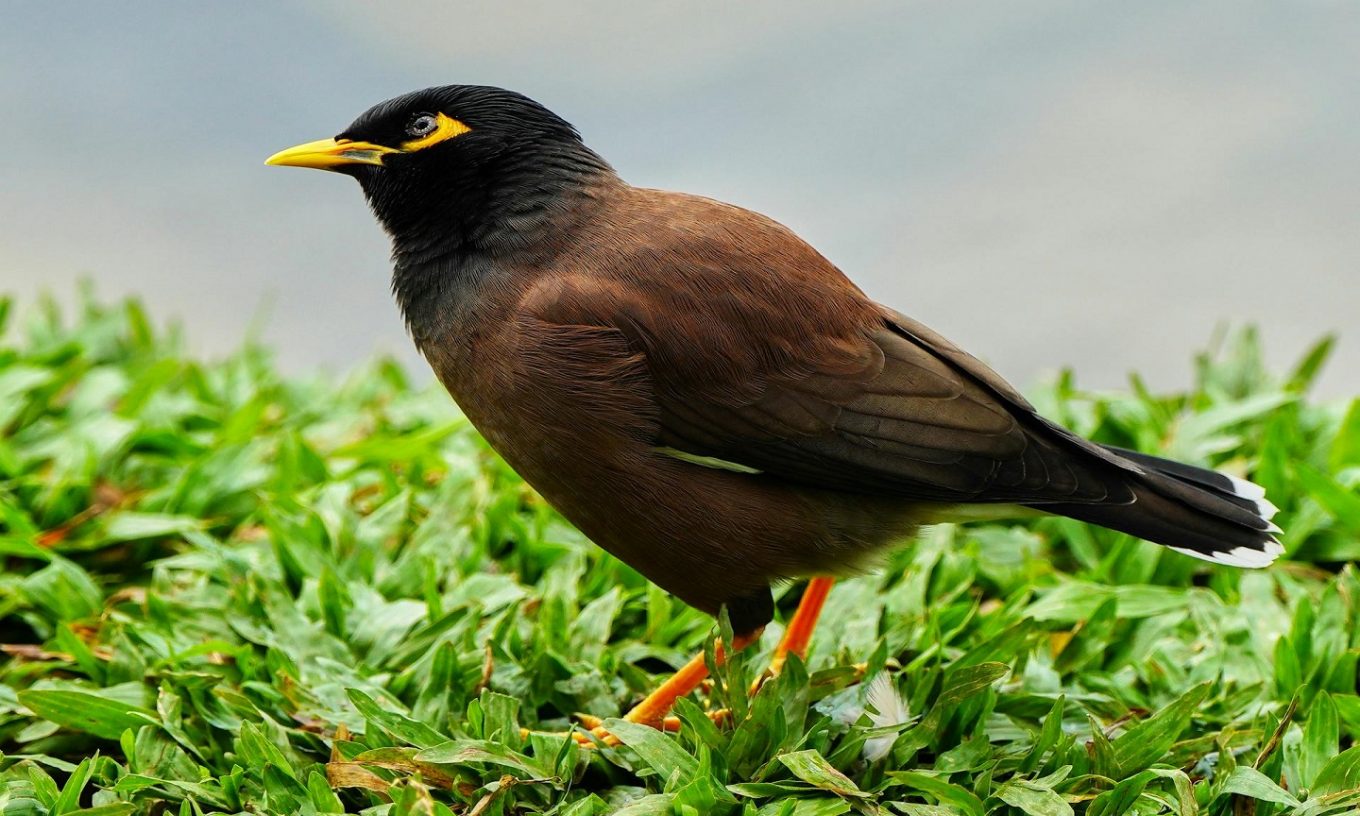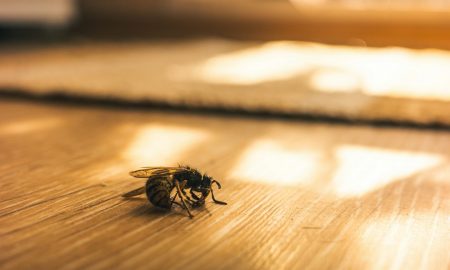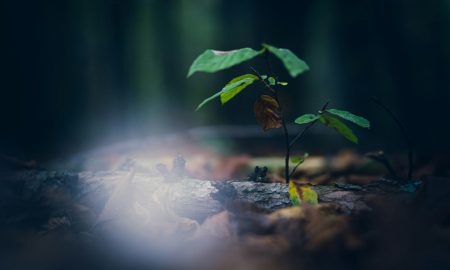If someone were to ask her, which was the exact moment she decided to leave the city, she would refuse to answer.
“It was the summer when the heat broke us apart like pieces of shattered glass. The heat had come in waves, blistering tides of warmer temperature approaching land cautiously. The heat grew until it became unbearable. Perhaps it was then that we had decided to seek our fortunes elsewhere – away from the city that we had once made home,” she would wax poetically to herself.
To her, it made complete sense. To others, her reasoning seemed flimsy. Perhaps they were right. Who left twenty years of city life behind?
Before she came to the city, the people in her village had told her that cities were swarming insect storms of nothingness, crowded and diminutive in scope.
She disagreed. For her, the city had been home. The city was a parent, it had given her tough lessons in life and friendship and a vocation she could call her own. She would lose herself in the expansiveness of transport and mechanics. It was almost elegant, the way everything worked – chaos dancing with never-ending efficiency. She learned to call herself a city dweller.
But there was some truth to the words of the village folk. Like a pomegranate, you were always packed together tightly in a city. In a village, you were a mango, seed to fleshy pulp, all your own.
In the early days of settling in the city, she would compare herself to a migratory bird and tell herself that she could only throng a place momentarily. It was as if something was forever moving in her body; her mind was constantly restless. Her body was a tree which had sprouted too many branches and leaves, and her weak roots weren’t strong enough to support the canopy of her being in one place. Eventually, as the years passed, almost a decade, and a pandemic loomed close, it got too much for her – the crowds, the unnerving heat, the breaking threads of her mind. She packed her bags and boarded a train back to her village with her puppy. Her husband followed after many fights, but her children gladly.
But settling in was always strange. It was ironic that it was mango season when she reached the village again. Perhaps nature also had a warped sense of humor.
***
“Amma, what is this drink? It is so tasty,” her son asked her. It had been a year since they had been living in the village. He was thirteen this year, a mass of overgrown limbs and brooding expressions. His brown eyes bore into hers with curiosity. He was always on his tablet, reading and trying to learn about the world around him.
“Aam Panna, beta,” she replied. She had gathered raw mangoes earlier in the week, peeled, sliced and boiled them. She strained the resulting mixture, a dark brownish-yellow syrup, and mixed it with namak, nimboo and pudina.
“Oh, like Paperboat juice. Only without a packet.”
“Yes, precisely. Like Paperboat juice.”
“Amma, how did you learn about this? Did you attend online classes or on YouTube?” her son asked.
“No baccha, you learn through practice and intuition. Sometimes, trial and error. Lots of trial and error. I am going to make Aamchoor next. Do you want to try?” she asked.
They peeled a couple of unripe mangoes together. It was quite poetic, the way nature chose its subjects. A dull green shell that turned yellow and orange with age and a pulp that was white and hard. The dog came into the kitchen and started sniffing the peels that had landed on the floor.
“The peels are to be dried in the sun, laid perfectly flat. When the strands of mango peel become dry and hard, you grind it into a fine powder. That’s your aamchoor.”
“But what do you do with so many mangoes, Amma? In the city there were never enough mangoes and here there are too many,” her son quipped.
She took his hands in hers and they sliced a pulpy green mango open carefully. She guided the motions of his wrists with methodical ease.
“When there are too many mangoes in the village, we make aam ka aachar with it. Always pick the mangoes from the ground. Chop them into pieces. Divide them into two batches and toss one with kala namak and lal mirch. Mix the other batch with mustard oil and pour it into the big ceramic jar. Toss two tablespoons of methi seeds, kalonji, jeera, lal mirch powder, salt and saunf.”
“Mustard oil stinks amma,” her son grumbled.
“Well, your pickle will not,” she replied, turning to look at her son, who was sneaking glances at the door.
Making exaggerated gagging noises, he turned on his heels, but she caught him by the scruff of his shirt.
“Don’t do badmaashi. Clean as you go, Beta,” she mumbled.
They gathered the remaining peels and she beckoned her son to the garden outside. They dug a hole in the dirt and tossed the peels into the ground.
“Food is about precision; you nurture yourself and you always nurture the earth around you. I will teach you about composting and its benefits someday.”
He gave her a puzzled look before replying. “Hydroponics, Amma. That’s all the rage now. Plants are grown in water instead of soil, much less wastage… Plus, sometimes you can use fish pee. You should read about it; your methods are getting old…”
Perhaps, someday, he will understand, she thought as she watched her son walk away.
Sometimes, she wondered about food which came in packages that he so liked — the strangeness yet familiarity of flavors disoriented her. Oiled and packaged, stretched to its limit, it never tasted quite right to her.
First, hydroponics is costly, much more expensive than traditional farming. Second, it is vulnerable to power outages. Third, water-borne diseases if you are not cautious. She had learned to choose her words with care, she knew she couldn’t voice everything out loud.
“Not everything works everywhere,” she shouted at the shadow of her son disappearing in the garden outside. The dog ran after him joyfully.
***
“Amma, your food is the best,” her little girl told her after drinking tomato soup. Her daughter loved food and, unlike her son, was always ready to try whatever she cooked. The dog was asleep near her daughter’s chair, content in the laziness of the evening.
She had dried the tomatoes in the sun, grinding them into a powder. She had started working with a small group of women in the village. She had demonstrated the making and packaging of tomato soup to them. If she grew her small business, she would invest in a large-scale solar cooker.
“Two fresh tomatoes instead of four, beta and two tablespoons of tomato powder, sun-dried, not oven-dried. Boil with a half cup of milk. Temper with ginger and garlic. It will turn out to be perfect.” she told her. Her little girl was quieter, sometimes so much like her husband.
“Always, and always let tomatoes grow in the sun for an extra day before picking. Otherwise, they come out green and sour.” Her daughter nodded and gulped down the remaining soup. She was a good girl, complacent, quiet but always a little wary of her. She was better now, so she couldn’t understand her daughter’s continuing aloofness.
She picked up the utensils, walked into the living room and saw her husband hunched over his laptop. They were much friendlier these days, settling into an easy bonhomie. Yet, like the ever-changing weather, his personality had started shifting ever so slightly.
Once upon a time, he had been an avid gardener himself. She thought by moving to a village, he would rekindle his hobby and the familiarity of nature would prod him to move away from technology. If he had yearned for the tranquility of rural life before, he now yearned for the humdrum of the city. It was the endlessness of Excel sheets, office politics and Zoom calls that excited him. Perhaps, like her, he was also a bird. She would liken him to a dancing green pigeon. From far away, you thought he was a tota — a ring-necked parrot. When you got closer, you realized that only his color was different, and that he was like any other rock pigeon you found on the concrete face of the city. Perhaps the quotidian acceptance of life was his nature as much as a strange desire to unsettle the world was hers.
“Did you look at my idea for sustainable farming? I have been looking at some small pieces of land around here which we could take on lease. We wouldn’t even have to buy it. Plus, there’s a ton of labor and skill available here. Not to mention, tons of by-products that can be created which can be packaged and sold and marketed.”
He looked up briefly and caught her eye.
“What do we even know about running a farm, my Myna?” he asked her. “I think we should stay put and build up our investment. Most start-ups and new ventures fail in the first five years.”
“But we have the money and I have the experience. We can start now. There’s a group of women that I mentor. I am young; our kids are independent and don’t require much handholding. We should at least try.”
“We need money, my Myna,” her husband replied.
“But that is why we shifted to a village.” She held his gaze. “I am capable, we can do this now. Maybe not before, but now we can.”
“Perhaps in a few years, my Myna. Once you are better.”
Her enthusiasm felt as if it had deflated itself from the inside. It wasn’t as if money was tight for them. That was the excuse he always gave her. There were two parts to living comfortably: what you earned and what you chose to do with it. They had been frugal all their lives, this was the time to take a risk.
She didn’t like how he kept calling her Myna. She had told him as much, but he persisted. It made her feel small and invalidated, like a gregarious little bird of her namesake, which always needed protection. She had resisted calling herself Myna, it seemed to lend her insignificance. Sometimes, in her mind, she compared herself to a large tree, her branches extending in all directions, a reservoir of emotions and imagination. Perhaps she needed to imagine herself better. A bird was rootless. A tree was rooted.
***
In the wee hours of the morning, she would reach out to feel the quietness and stillness of the house. She had always thought that they were one of the lucky ones. When the darkness of her mind had become too much, and the heat of the city crumbled them into pieces, they had the opportunity to leave. To dwell in a space which was quieter, more attuned to nature.
One morning before the sun fully rose, she stole away from her house to soak in the wilderness at the periphery of her house. Her kitchen garden housed her sanity, snaking beans growing on tendrils, onion shoots digging to come to shore, ripe bananas threatening to fall off their stems, and coriander sprigs in little pots. Beyond her little kitchen garden lay the wilderness. It was the edge of a forest. She closed the gate to her kitchen garden and felt something soft nudging her palms. It was her dog which had come to join her on her morning exploration. He would always follow her closely, his ears perking up ever so slightly. They would look at millipedes and strange-smelling fungi that grew in the corners of trees. She would walk around humming, always at the periphery of the forest.
She knew going into the interiors meant attracting attention – there were always herds of elephants out and about. She had learned to keep a measured distance, never trudging too deep, circling just enough. Sometimes, she would come across a new plant; sometimes, it would be a wild Tulsi or an Ashwagandha, like she had cultivated in her garden. Some flowers blossomed once in twelve years, and others came in every year. There were no limitations to nature.
Sometimes, she would spy on a spider, with its menacing kingdom extending from the floor of the forest to the branches of the trees. She never ventured too close, she understood it was a beautiful thing of existence – fragile yet magnificent at the same time, quite like herself. She had learned a person always existed on the cusp of things. A year ago, it was an apartment that opened to the sky outside; today, it was a house on the edge of a forest. She never ventured too close to anything, she understood that she existed between two worlds – civilized, wild, sinister, modern, archaic, right and wrong. In the past, in the grip of a moment, she would have endless emotions of despair and the next, she would be fine. She blamed the endless, overflowing heat coupled with humidity. The doctor had told her it was one of her episodes. She would regain control again, slowly. The brain had plasticity, it could go awry now and then. Medicines would help.
She wondered if her brain was like a swing that she would hang from a tree as a child. Did it oscillate at times? Was there a state of stasis where it stayed too long and would start swinging violently in another direction? Perhaps her brain was like her life, civilized at times and crowded like the wilderness, at others. She could feel her heartbeat rise; she started taking deep breaths to put her mind at rest; she seemed to be going too deep into thinking about things.
Grey clouds had started forming overhead and she could feel the turn of the weather. It was time for her to head back. She whistled loudly to call out her dog. It ran up to her, carrying a lump gently in its mouth. She laughed and commanded it to drop it. The lump turned out to be a wrinkly yellow frog which promptly skittered away. She walked to the house, the dog following her closely and going around in circles when they reached her kitchen garden. It was starting to drizzle. She loved the smell of rain. No, not petrichor, she thought to herself, the mellow smell that the leaves emanated when the dryness of summer was finally behind them.
“Did you have a good walk?” her husband asked her.
“Yes, it was quiet. There seems to be a herd of elephants nearby… I’ll make your coffee and head out for another training session.”
She put down two Starbucks cups on the table. It had been a joke between them, the recognizable mementoes of their city life.
Her husband called out gently, “You know, I have been pondering over what you said yesterday. Perhaps, we cannot go out all the way, but I am ready to invest in a small portion of land… We can start small and grow, see whatever is possible.”
She squealed and hugged him. They both held hands and watched the drizzle while sipping their coffee. Their dog was napping on the couch, and a herd of elephants could be heard in the distance. Perhaps, she thought to herself, a person is not a tree or a bird but a vine, which grows on the ground, rooted but also ever-changing in its quest for sustenance and florescence.
The next week, torrential rains struck with a fury unbeknown to the villagers. It wiped out large swatches of land and houses in the area. News reports blamed climate change and mentioned that the village was rendered largely useless for agriculture.





